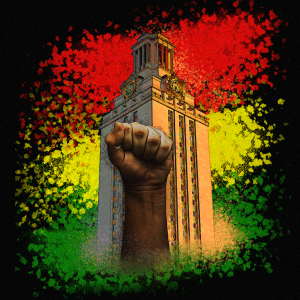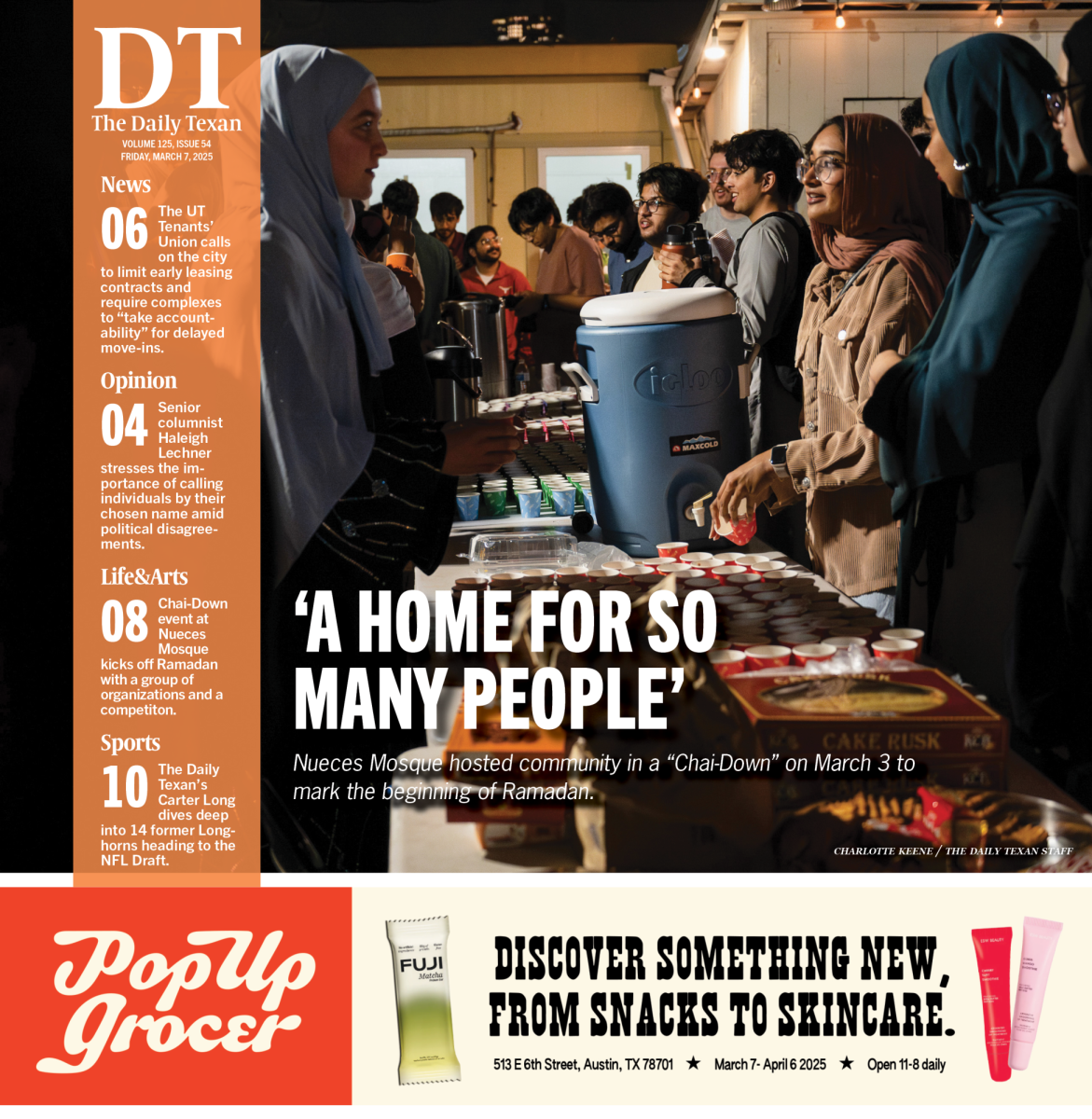Why representation in media matters
January 26, 2023
Representation in media is a force to be reckoned with.
From broadcast television to blockbuster movies, the people on and behind the screens have immense power in shaping ideas within American society. For too long, mass media has been shadowed by barriers that result in a lack of culturally honest storytelling.
The media industry must do better. We, as consumers of media, must do better.
For many, there’s comfort in seeing a relatable character on screen. Accurate and culturally honest representation is empowering. There’s an essence of pride in seeing nuanced traditions, your native tongue articulated and to discover a newfound role model.
As such, representation is important in media, and UT students have a stake in our community’s reflection of culturally honest media. Students have power in shaping media.
Radio-television-film senior Madhavi Subramaniam values representation and student empowerment.
“When you see someone who does represent you, … it feels really good,” Subramaniam said. “When enough people (share their experiences), it’ll eventually affect the whole community.”
Representation is the inclusion of societal norms and diverse individual identities — race, gender, ethnicity and status, among others. People consume media through different mediums. In all forms, it’s important to ensure diversification, avoid misrepresentation and prevent tokenism.
“If you’re part of that community, then I think it’s fair to take from your own personal experiences and talk to other people within that community” Subramaniam said. “If you’re not in a community, I think you have to outsource.”
In considering representation, it’s also necessary to understand who writes the stories and calls the shots.
“We need to look at who gets employed; Who are storytellers?” said Mary Beltrán, a radio-television-film associate professor. “(We need to know who) are the people working within the media industries that make the decisions.”
Being culturally honest in representation can be difficult. However, once this barrier has been broken, authentic representation has the potential to empower individuals, reinforce role models and allow consumers to express their fundamental personalities.
“It’s important to get to know (that your) voice matters,” said Miguel Alvarez, a radio-television-film assistant professor. “If you don’t think your voice matters, that’s going to keep you from telling your story.”
In the collective vision for representation in media, to have a stake in the game, you need to first play the game.
In the pursuit of true diversity, equity and inclusion, we must recognize the dynamic effects of representation in media. Young and inquisitive minds are heavily influenced by media consumption. Breaking stereotypes starts here. Generational inclusivity and authentic diversity are products of a screenwriter’s ideas and casting practices.
We as students and faculty have a stake. We choose which media we consume and which concepts we support. Representation in media is dependent on consumer influence.
For now, the puzzle of representation remains incomplete, but we’re getting there. It may be a while. Fractures of identity, pieces of lost traditions and splinters of cultural lenses are all powered in by media.
It’s time to recognize the unspoken, the unheard.
Wan is a civil engineering and Plan II freshman from Houston, Texas.
















